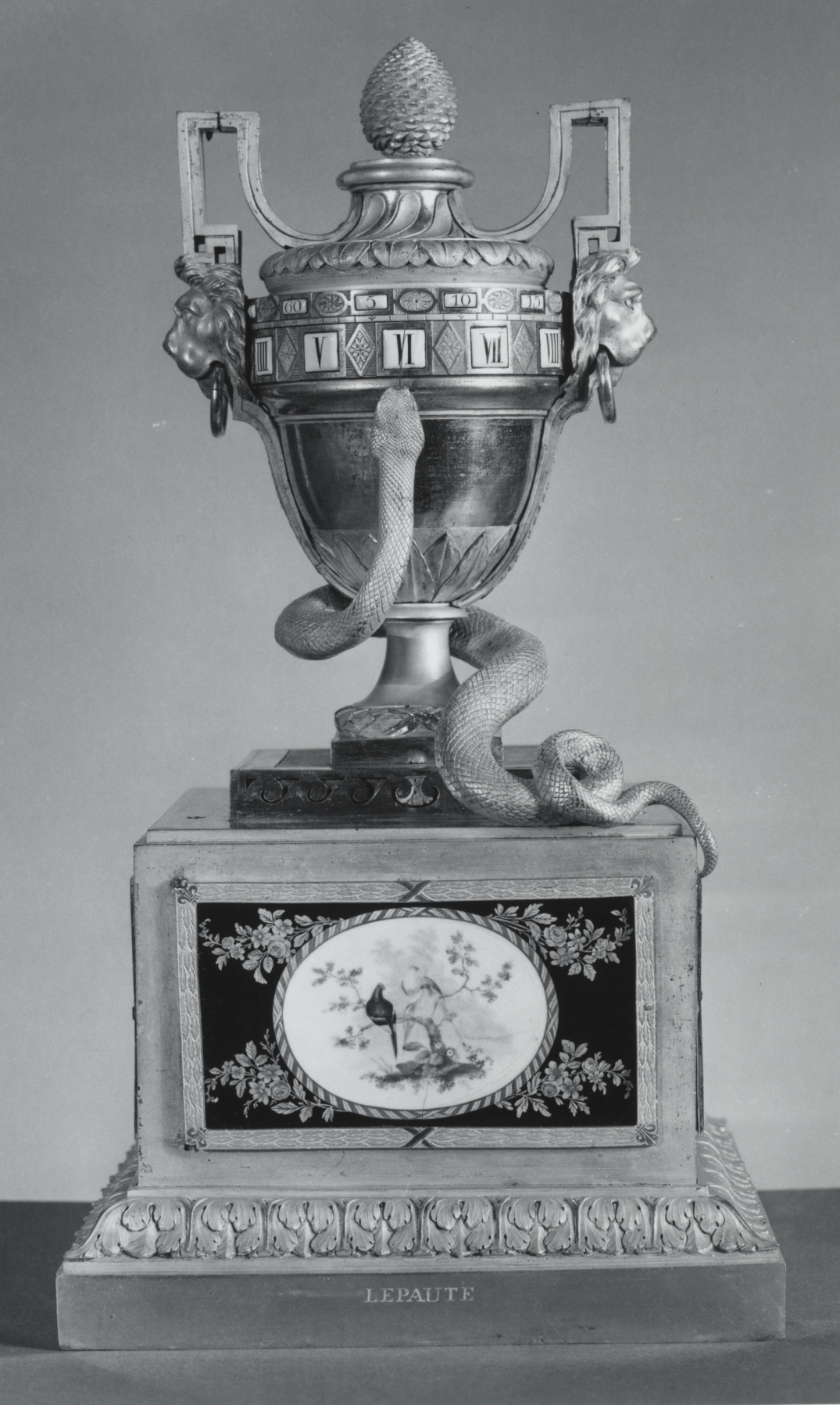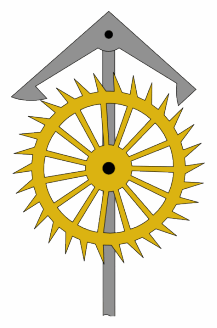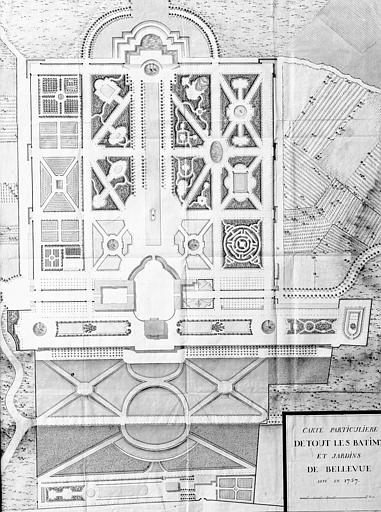|
Jean-André Lepaute
Jean-André Lepaute (23 November 1720 – 11 April 1789), together with his younger brother Jean-Baptiste Lepaute (6 February 1727 – 18 March 1802), was a founder of an outstanding French clockmaker dynasty of their day, holding the brevet ''horlogers du Roi''. His brother assumed his workshop in 1774, when Jean-André retired; he died after a long illness at Paris. Born at Thonne-la-Long in Lorraine, Lepaute arrived in Paris as a young man. His brother joined him in 1747. Before he was received ''maître'' by the clockmakers' guild in 1759, he had made such a reputation with several public clocks, notably at the palais du Luxembourg, the château de Bellevue and the château des Ternes that he was given lodgings in the Luxembourg. His clock at the École Militaire, Paris, (''illustration, left'') still runs. Lepaute was an innovator, to whom numerous improvements are due, especially his pin-wheel escapement. He constructed refinements to the clockwork in which the gears are al ... [...More Info...] [...Related Items...] OR: [Wikipedia] [Google] [Baidu] |
Jean-André Lepaute - Urn Clock - Walters 58248
Jean-André is a French masculine given name. It may refer to: * Jean-André Cuoq (1821–1898), French philologist * Jean-André Deluc (1727–1817), Swiss geologist and meteorologist * Jean-André Mongez (1750–1788), French priest and mineralogist * Jean-André Rixens (1846–1925), French painter See also * Jean (male given name) * André André — sometimes transliterated as Andre — is the French and Portuguese form of the name Andrew, and is now also used in the English-speaking world. It used in France, Quebec, Canada and other French-speaking countries. It is a variation ... {{given name French masculine given names Compound given names ... [...More Info...] [...Related Items...] OR: [Wikipedia] [Google] [Baidu] |
Escapement
An escapement is a mechanical linkage in mechanical watches and clocks that gives impulses to the timekeeping element and periodically releases the gear train to move forward, advancing the clock's hands. The impulse action transfers energy to the clock's timekeeping element (usually a pendulum or balance wheel) to replace the energy lost to friction during its cycle and keep the timekeeper oscillating. The escapement is driven by force from a coiled spring or a suspended weight, transmitted through the timepiece's gear train. Each swing of the pendulum or balance wheel releases a tooth of the escapement's ''escape wheel'', allowing the clock's gear train to advance or "escape" by a fixed amount. This regular periodic advancement moves the clock's hands forward at a steady rate. At the same time, the tooth gives the timekeeping element a push, before another tooth catches on the escapement's pallet, returning the escapement to its "locked" state. The sudden stopping of the esc ... [...More Info...] [...Related Items...] OR: [Wikipedia] [Google] [Baidu] |
1720 Births
Seventeen or 17 may refer to: *17 (number), the natural number following 16 and preceding 18 * one of the years 17 BC, AD 17, 1917, 2017 Literature Magazines * ''Seventeen'' (American magazine), an American magazine * ''Seventeen'' (Japanese magazine), a Japanese magazine Novels * ''Seventeen'' (Tarkington novel), a 1916 novel by Booth Tarkington *''Seventeen'' (''Sebuntiin''), a 1961 novel by Kenzaburō Ōe * ''Seventeen'' (Serafin novel), a 2004 novel by Shan Serafin Stage and screen Film * ''Seventeen'' (1916 film), an American silent comedy film *''Number Seventeen'', a 1932 film directed by Alfred Hitchcock * ''Seventeen'' (1940 film), an American comedy film *''Eric Soya's '17''' (Danish: ''Sytten''), a 1965 Danish comedy film * ''Seventeen'' (1985 film), a documentary film * ''17 Again'' (film), a 2009 film whose working title was ''17'' * ''Seventeen'' (2019 film), a Spanish drama film Television * ''Seventeen'' (TV drama), a 1994 UK dramatic short starring Christ ... [...More Info...] [...Related Items...] OR: [Wikipedia] [Google] [Baidu] |
French Clockmakers
French (french: français(e), link=no) may refer to: * Something of, from, or related to France ** French language, which originated in France, and its various dialects and accents ** French people, a nation and ethnic group identified with France ** French cuisine, cooking traditions and practices Fortnite French places Arts and media * The French (band), a British rock band * "French" (episode), a live-action episode of ''The Super Mario Bros. Super Show!'' * ''Française'' (film), 2008 * French Stewart (born 1964), American actor Other uses * French (surname), a surname (including a list of people with the name) * French (tunic), a particular type of military jacket or tunic used in the Russian Empire and Soviet Union * French's, an American brand of mustard condiment * French catheter scale, a unit of measurement of diameter * French Defence, a chess opening * French kiss, a type of kiss involving the tongue See also * France (other) * Franch, a surname * Fren ... [...More Info...] [...Related Items...] OR: [Wikipedia] [Google] [Baidu] |
Jean-François De Galaup, Comte De Lapérouse
Jean François de Galaup, comte de Lapérouse (; variant spelling: ''La Pérouse''; 23 August 17411788?), often called simply Lapérouse, was a French naval officer and explorer. Having enlisted at the age of 15, he had a successful naval career and in 1785 was appointed to lead a scientific expedition around the world. His ships stopped in Chile, Hawaii, Alaska, California, Mauritius, Reunion, Macau, Japan, Russia, and Australia, before wrecking on the reefs of Vanikoro in the Solomon Islands. Early career Jean-François de Galaup was born near Albi, France. His family was ennobled in 1558. Lapérouse studied in a Jesuit college, and joined the Navy as a Garde-Marine in Brest on 19 November 1756. In 1757 he was appointed to the French ship ''Célèbre'' and participated in a supply expedition to the fort of Louisbourg in New France. Lapérouse also took part in a second supply expedition in 1758 to Louisbourg, but as this was in the early years of the Seven Years' War, the ... [...More Info...] [...Related Items...] OR: [Wikipedia] [Google] [Baidu] |
Joseph Lepaute Dagelet
Joseph Lepaute Dagelet (1751–1788) was a French astronomer, clockmaker and mathematician who accompanied Lapérouse on his scientific circumnavigation, in the course of which he perished in the final shipwreck of the expedition. Dagelet's astronomical sightings gave precision to the maps posthumously published in the official ''Atlas du Voyage de la Perouse'' (Paris: L'Imprimerie de la Republique, An V, 1797). Young Dagelet arrived in Paris in 1767, welcomed by his uncles the renowned clockmakers Jean-André and Jean-Baptiste Lepaute, who held the brevet ''horlogers du Roi''. Through his aunt, Nicole-Reine Lepaute, wife of Jean-André, he discovered his aptitude for astronomy. From his arrival until 1772 he studied in the observatory of the Collège Mazarin, where he was guided by Joseph Jérôme Lefrançois de Lalande. In 1773 he departed for the South Seas with the expedition of Yves Joseph de Kerguelen de Trémarec; on his return he was made professor of mathematics at ... [...More Info...] [...Related Items...] OR: [Wikipedia] [Google] [Baidu] |
Nicole-Reine Lepaute
Nicole-Reine Lepaute () née Étable de la Brière, also erroneously known as Hortense Lepaute, (5 January 1723 – 6 December 1788) was a French astronomer and human computer. Lepaute along with Alexis Clairaut and Jérôme Lalande calculated the date of the return of Halley's Comet. Her other astronomical feats include calculating the 1764 solar eclipse and producing almanacs from 1759 to 1783. She was also a member of the Scientific . The asteroid 7720 Lepaute is named in her honour, as is the lunar crater Lepaute. Early life Nicole-Reine Lepaute was born on the 5th of January, 1723 in the Luxembourg Palace in Paris as the daughter of Jean Étable, valet in the service of Louise Élisabeth d'Orléans. Her father had worked for the royal family for a long time, both in the service of the duchess de Berry and her sister Louise. She was the sixth of nine children. As a child she was described as precocious and intelligent, being mostly self-taught. She stayed up all night "dev ... [...More Info...] [...Related Items...] OR: [Wikipedia] [Google] [Baidu] |
Louis XVI Style
Louis XVI style, also called ''Louis Seize'', is a style of architecture, furniture, decoration and art which developed in France during the 19-year reign of Louis XVI (1774–1793), just before the French Revolution. It saw the final phase of the Baroque style as well as the birth of French Neoclassicism. The style was a reaction against the elaborate ornament of the preceding Baroque period. It was inspired in part by the discoveries of Ancient Roman paintings, sculpture and architecture in Herculaneum and Pompeii. Its features included the straight column, the simplicity of the post-and-lintel, the architrave of the Greek temple. It also expressed the Rousseau-inspired values of returning to nature and the view of nature as an idealized and wild but still orderly and inherently worthy model for the arts to follow. Notable architects of the period included Victor Louis (1731–1811), who completed the theatre of Bordeaux (1780), The Odeon Theatre in Paris (1779–1782) was ... [...More Info...] [...Related Items...] OR: [Wikipedia] [Google] [Baidu] |
École Militaire , a Japanese video-games developer/publisher
{{disambiguation, geo ...
École may refer to: * an elementary school in the French educational stages normally followed by secondary education establishments (collège and lycée) * École (river), a tributary of the Seine flowing in région Île-de-France * École, Savoie, a French commune * École-Valentin, a French commune in the Doubs département * Grandes écoles, higher education establishments in France * The École, a French-American bilingual school in New York City Ecole may refer to: * Ecole Software This is a list of Notability, notable video game companies that have made games for either computers (like PC or Mac), video game consoles, handheld or mobile devices, and includes companies that currently exist as well as now-defunct companies. ... [...More Info...] [...Related Items...] OR: [Wikipedia] [Google] [Baidu] |
Château De Bellevue
The Château de Bellevue () was a small château built for Madame de Pompadour in 1750. It was constructed on a broad plateau in Meudon, above a slope overlooking the Seine to the east, but was demolished in 1823 and little remains. History At the instigation of Louis XV, Charles François Paul Le Normant de Tournehem, ''directeur général'' of the ''Bâtiments du Roi'', negotiated the purchase of the land from its various owners, located between Louis' châteaux at Meudon and Saint-Cloud. Ange-Jacques Gabriel, ''Premier architecte du Roi'', proposed the construction of a pleasure house to be named "Bellevue", referring to its views over the Seine. In 1749, Louis gave the land to Madame de Pompadour, who delegated the building to her architect, Jean Cailleteau (called "Lassurance the younger"), assisted in the gardens by Jean-Charles Garnier d'Isle. The work was quickly completed, despite the need for deep foundations. 800 workmen were employed, often with Louis in att ... [...More Info...] [...Related Items...] OR: [Wikipedia] [Google] [Baidu] |
Palais Du Luxembourg
The Luxembourg Palace (french: Palais du Luxembourg, ) is at 15 Rue de Vaugirard in the 6th arrondissement of Paris. It was originally built (1615–1645) to the designs of the French architect Salomon de Brosse to be the royal residence of the regent Marie de' Medici, mother of King Louis XIII. After the Revolution it was refashioned (1799–1805) by Jean Chalgrin into a legislative building and subsequently greatly enlarged and remodeled (1835–1856) by Alphonse de Gisors. The palace has been the seat of the upper houses of the various French national legislatures (excepting only the unicameral National Assembly of the Second Republic) since the establishment of the ''Sénat conservateur'' during the Consulate; as such, it has been home to the Senate of the Fifth Republic since its establishment in 1958. Immediately west of the palace on the Rue de Vaugirard is the Petit Luxembourg, now the residence of the Senate President; and slightly further west, the Musée du Luxembo ... [...More Info...] [...Related Items...] OR: [Wikipedia] [Google] [Baidu] |



